第39章
1. The Public Magician
THE READER may remember that we were led to plunge into the labyrinth of magic by a consideration of two different types of man-god. This is the clue which has guided our devious steps through the maze, and brought us out at last on higher ground, whence, resting a little by the way, we can look back over the path we have already traversed and forward to the longer and steeper road we have still to climb.
As a result of the foregoing discussion, the two types of human gods may conveniently be distinguished as the religious and the magical man-god respectively. In the former, a being of an order different from and superior to man is supposed to become incarnate, for a longer or a shorter time, in a human body, manifesting his super-human power and knowledge by miracles wrought and prophecies uttered through the medium of the fleshly tabernacle in which he has deigned to take up his abode. This may also appropriately be called the inspired or incarnate type of man-god. In it the human body is merely a frail earthly vessel filled with a divine and immortal spirit. On the other hand, a man-god of the magical sort is nothing but a man who possesses in an unusually high degree powers which most of his fellows arrogate to themselves on a smaller scale; for in rude society there is hardly a person who does not dabble in magic. Thus, whereas a man-god of the former or inspired type derives his divinity from a deity who has stooped to hide his heavenly radiance behind a dull mask of earthly mould, a man-god of the latter type draws his extraordinary power from a certain physical sympathy with nature.
He is not merely the receptacle of a divine spirit. His whole being, body and soul, is so delicately attuned to the harmony of the world that a touch of his hand or a turn of his head may send a thrill vibrating through the universal framework of things; and conversely his divine organism is acutely sensitive to such slight changes of environment as would leave ordinary mortals wholly unaffected. But the line between these two types of man-god, however sharply we may draw it in theory, is seldom to be traced with precision in practice, and in what follows I shall not insist on it.
We have seen that in practice the magic art may be employed for the benefit either of individuals or of the whole community, and that according as it is directed to one or other of these two objects it may be called private or public magic. Further, I pointed out that the public magician occupies a position of great influence, from which, if he is a prudent and able man, he may advance step by step to the rank of a chief or king. Thus an examination of public magic conduces to an understanding of the early kingship, since in savage and barbarous society many chiefs and kings appear to owe their authority in great measure to their reputation as magicians.